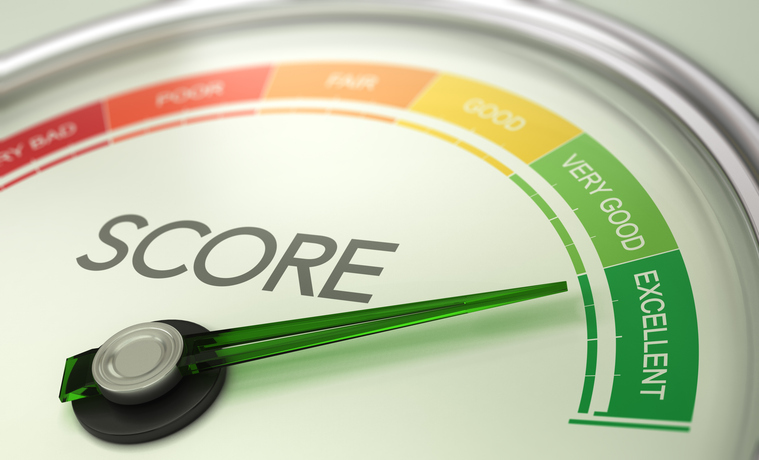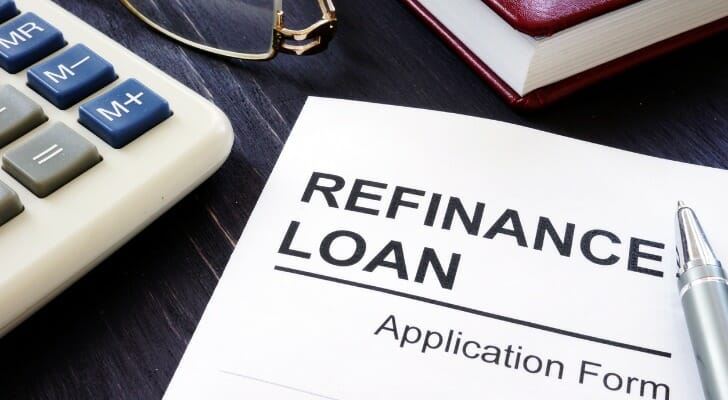You may have noticed that when we’re in a recession, there tends to be increased consumer interest in mortgage refinancing. You might see or hear advertisements about lower interest rates and how you can lower your monthly mortgage payment. However, there are several factors to take into account when deciding when – or if – you should refinance your mortgage, including the expected trajectory of mortgage rates. We’ll review some scenarios in which it might be worth considering. You can also consult with a financial advisor to see what makes financial sense for you.
Mortgage Interest Rates Dropped
The most popular reason people refinance their mortgage is to receive a lower interest rate. When the Federal Reserve drops interest rates, it’s typically because the economy is struggling. Cutting rates has an indirect effect on the mortgage rates; indeed, one reason the Fed cuts interest rates is to encourage consumers to purchase real estate.
Refinancing at a lower interest rate may decrease your monthly payment. You could refinance your mortgage at a lower rate but also change the terms of your mortgage. For example, if you have 20 years left on a 30-year mortgage, you may be in a financial position to refinance your home to a 15-year mortgage and still pay a similar amount each month.
Lower interest rates do not always mean that you should refinance your home. However, if you hear that interest rates have dropped and you have a good credit score, you may want to speak with a financial advisor or a mortgage lender to evaluate if this is the right move for you.
Your Home’s Value Increased
Another reason to refinance your mortgage is if the value of your home has increased. This allows you to do what’s called a cash-out refinance – an especially valuable option if you have high-interest debt that you need to pay down.
For example, you may have purchased a $200,000 home and put a $40,000 down payment on it, leaving you with a $160,000 mortgage. You’ve made regular interest payments and now owe $100,000. However, over the last several years, the value of your home has increased from $200,000 to $250,000. This means you can take out a mortgage for more than the remaining cost of your mortgage and pocket the difference. You can then use it for any needs, whether that’s financing an addition to your house or paying down some high-interest credit card debt.
This can be a viable way to consolidate your debt. However, you should only do this if you can make the new regular payments on your mortgage. Your total debt will not decrease, but by paying off high-interest debt you can save money by paying less total interest.
Your Credit Score Rose

When determining your interest rate, your credit score is one of the biggest factors lenders consider. Therefore, if you had a lower credit score when you first purchased your home, you might be able to refinance at a lower interest rate.
For example, let’s say you applied for a $200,000 mortgage with a 30-year mortgage, had a credit score between 660 and 680, and received an interest rate of 4.55%. But, if your credit score was between 700-779, your interest rate could be closer to 4.25%. Over the 30-year life of the loan, having a better credit score would save you over $12,417.
You Have an ARM and Rates Are Rising
If you have an adjustable rate mortgage (ARM), your interest rates can increase during your repayment term. Therefore, you might have a lower interest rate during the first few years of your loan, but as interest rates increase, you are responsible for larger payments. Therefore, you might want to refinance and get a fixed-rate mortgage to help you cap your payments.
Additional Considerations
While saving money on interest and lowering your money payments may be enticing, there are a few things that you should consider before making the leap.
Use a Mortgage Refinance Calculator
A mortgage refinance calculator can show you what interest rate you can anticipate and what the closings cost you should expect. You can also use the calculator to see what your monthly payment would be on a 15- or 20-year mortgage. Using a calculator can help you compare your current terms to your potential new terms to see if refinancing is worth considering.
Factor in Fees
There are always costs associated with closing on a property, even if you are refinancing it. Typically, the closing costs will be about 2%-5% of the total value of the loan. For example, if you are refinancing $100,000 of your home, your closing costs will likely be about $2,000-$5,000. You should consider the appraisal fee, title search fee, home inspection fee, attorney fee, origination fee, and points fees when deciding if you are going to refinance.
Additionally, you should consider if the fees are worth the lower mortgage payment. For example, if your monthly payment drops from $900 to $800, but you are paying $3,000 in fees, it may take up to 30 months to make up for the closing costs.
Consider a New Term
If your original mortgage is a 30-year term, then you might want to refinance to pay less interest. While refinancing at a shorter term might end up costing you more each month, you can save a lot of money over time that you would be paying in interest. Therefore, if you can afford slightly higher payments, it might be worth evaluating if you should refinance your home. This is especially true if your credit score has increased, the interest rates have gone down, or if you are earning more than when you first purchased your home.
Decide If You’re Willing to Invest the Time
Refinancing can take a lot of time and effort. You might have to go digging for paperwork or have several meetings with your lawyer or mortgage lender. Therefore, decide early on if refinancing is worth your time.
Bottom Line

While refinancing can help some people save money and enhance their financial situation, it isn’t right for everyone. Therefore, be sure to use resources like the mortgage calculator and speak with a mortgage professional before making other steps toward a refinance.
Tips for Managing a Home Loan
- For many people, a home is the biggest purchase you’ll ever make, so it’s a good idea to discuss with a financial advisor how a mortgage impacts your financial plan. Finding a financial advisor doesn’t have to be hard. SmartAsset’s free tool matches you with up to three vetted financial advisors who serve your area, and you can have a free introductory call with your advisor matches to decide which one you feel is right for you. If you’re ready to find an advisor who can help you achieve your financial goals, get started now.
- Wondering how much you’ll pay every month on your new mortgage? Check out our free mortgage calculator.
Photo credit: ©iStock.com/RossHelen, ©iStock.com/Olivier Le Moal, ©iStock.com/designer491
